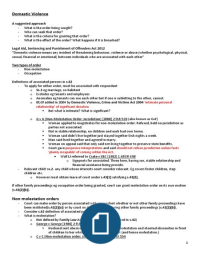Exam (elaborations)
Domestic Violence - Complete Exam Notes
- Course
- Institution
These are the notes that I took as part of my Family Law module and used to revised for the assessment, in which I scored a good First Class mark. The notes are easy to follow and well structured, with cases and academic commentary highlighted throughout.
[Show more]



